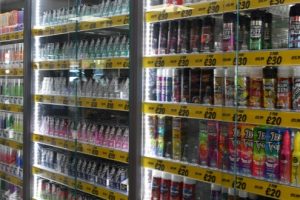Bite Back 2030 has called for clearer labelling after its survey of more than 500 food and drink products driven by marketing with healthy claims found that more fell into the unhealthy category.
It says that these unhealthy foods are commonly consumed by teenagers.
The campaign’s report said that 57% of products surveyed were high in either salt, sugar or fat, which rose to 62% in the case of drinks, which often contain high levels of sugar.
The group, which conducted the research in partnership with the charity Action on Sugar and creative business Livity, said that it had surveyed 1000 teens about their diet.
The report said: “Young people overwhelmingly think their diet is healthy (73%) despite the fact that their intake of sugar, fruit and veg, and fibre, is not on a par with (or nowhere near) the government’s daily nutrition reference intakes.”
Particular concerns included smoothies – which 90% of young people think are healthy yet in 76% of cases contain high levels of sugar.
“The Bite Back survey also said that cereal bars and yoghurts often make healthy claims that are not borne out by nutritional value.
The campaign is calling on the government to introduce a clear, mandatory labelling policy in the UK.
It says this should include declaration of free sugars, regulation to end healthy claims on unhealthy products and consistent portion sizing.
It also wants compulsory targets for changing the food industry, including declarations of percentage of sales from unhealthy and healthier products, as recommended in the National Food Strategy.
 Talking Retail Grocery and product news for independent retailers
Talking Retail Grocery and product news for independent retailers





